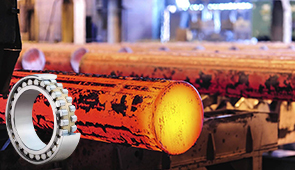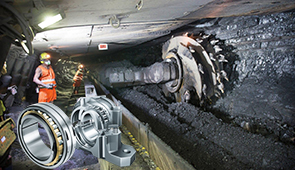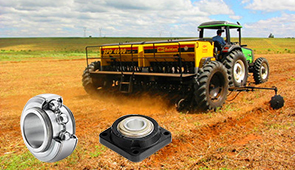What are the symptoms of bearing failure?
Bearing failures can be dangerous, especially when they occur in a motor vehicle. The most common symptom of bearing failure is noise. Bearings that are in need of replacement will make a loud squeaking sound. If you hear any unusual noises coming from your car, it’s best to have it inspected right away by a mechanic.
A bearing replacement is required when the bearings are damaged or worn down due to excessive heat, contamination or insufficient lubrication. When this happens, you may detect an unusual vibration in your vehicle’s steering wheel while driving. This vibration may also be felt through the pedals and seat while driving as well as when braking and accelerating. When this happens, there is also a good chance that you will experience some sort of mechanical failure with your car such as loss of power steering fluid or even complete engine failure due to faulty bearings in your vehicle’s transmission system.
Abrasion
Abrasion is the wearing away of a surface by friction with another surface. Abrasion can be studied using the Hertzian contact theory, which takes into account the force of friction between two surfaces and the relative speed at which they are moving.
Abrasion is one of the most common causes of wear-and-tear in mechanical components such as bearings and gears. It occurs when a component’s working load exceeds its ability to sustain normal wear and tear over time. In other words, if your component is experiencing too much friction, it will begin to wear out much faster than normal. In some cases, abrasion can even cause an immediate failure in an otherwise strong component.
Bearing failure due to abrasion is usually caused by improper installation or poor maintenance practices. For example, if you’re installing a new bearing cartridge into a pump but don’t properly lubricate it first, you could end up damaging it through excessive friction during operation.
Noise.
The most common symptom of a failing bearing is noise. If you hear any loud noises coming from your engine, it could be an indication of bearing failure.
Another symptom of a failing bearing is an unusual smell coming from the car’s engine compartment. This smell can vary depending on what kind of oil or grease is leaking into the engine compartment, but if you notice any strange smells coming from your car’s engine, call our mechanics to inspect it immediately.
Hissing sound when the car is first started. This noise is often heard when starting your car in cold weather or after it has been sitting for several hours. It typically goes away after the engine has been running long enough to warm up properly, but if you hear this noise frequently during normal driving conditions, it may indicate that there are problems with your car’s bearings or other internal components that need immediate attention.
Vibration
In a vibration test, you can determine whether the problem is a faulty bearing by observing its vibration signature.
If the vibration pattern shows an uncharacteristic frequency or amplitude, then there may be an issue with the bearings. In most cases, this means that there is a defect in one or more of your bearings and that they need to be replaced immediately.
Bearing failures can cause serious damage to your equipment and even lead to injury if not addressed in time. Because of this, it is important to know how to recognize when a bearing is failing so that you can take action before it becomes too late!
Temperature rise
Temperature rise is one of the most common symptoms of bearing failure.
The main cause of temperature rise is due to material fatigue and heat generation. Over time, the small increase in friction will cause the temperature to rise and exceed the maximum allowable temperature. The result is that the lubricant begins to break down and wear out, which will eventually damage the components.
Another reason for temperature rise is due to excessive load on the bearing and shaft or improper lubrication. A high temperature increases the rate of wear and causes premature failure.
Flaking
Flaking is a symptom of bearing failure. It means that the rubber on the ball or cage has been worn away, exposing the hardened steel beneath. This can happen for several reasons; one of the most common is overuse or abuse. When you initially buy your bearings, it is important to inspect them for flaking. As soon as you see it, replace your bearings immediately! Flaking can cause problems in the future if not taken care of immediately.
If you wait too long and allow your bearings to become completely flaked out, then it will be very difficult to remove them from the wheel since they are no longer smooth on the inside. If this happens, then you can use some sandpaper or a file to remove some of the excess rubber so that it becomes easier to remove them from your wheels (although this might not be necessary).
Run unevenly
There are many symptoms of a bearing failure, but the most obvious is when the bearing runs unevenly. You might notice that one side of the bearing is moving up and down more than the other side.
It’s also possible for bearings to fail without making any noise at all. You might notice that your car is vibrating more than usual or that it’s harder to control steering.
When bearings fail completely, they can cause serious damage to other parts of your car. For example, if you have a ball joint that’s failing and you continue driving with it, eventually you’ll get a broken tie rod or ball joint cable.
There are many reasons why bearings fail, but the most common reason is due to bearing shaft misalignment. This can cause the bearing to act like a dysfunctional shock absorber. The bearing is overloaded and will eventually wear out or even break. Bearing failure can also be caused by overheating, improper installation or just not having the proper lubrication in place.
UCTH213-40J-300 with Setscrew(inch)
CNSORDERNO: Normal-duty(2)
TOGN: UCTH213-40J-300
SDI: B-R1/8
SD: 2 1/2
UCTH212-39J-300 with Setscrew(inch)
CNSORDERNO: Normal-duty(2)
TOGN: UCTH212-39J-300
SDI: B-R1/8
SD: 2 7/16
UCTH212-38J-300 with Setscrew(inch)
CNSORDERNO: Normal-duty(2)
TOGN: UCTH212-38J-300
SDI: B-R1/8
SD: 2 3/8
UCTH212-36J-300 with Setscrew(inch)
CNSORDERNO: Normal-duty(2)
TOGN: UCTH212-36J-300
SDI: B-R1/8
SD: 2 1/4
UCTH211-35J-300 with Setscrew(inch)
CNSORDERNO: Normal-duty(2)
TOGN: UCTH211-35J-300
SDI: B-R1/8
SD: 2 3/16
UCTH211-34J-300 with Setscrew(inch)
CNSORDERNO: Normal-duty(2)
TOGN: UCTH211-34J-300
SDI: B-R1/8
SD: 2 1/8


















